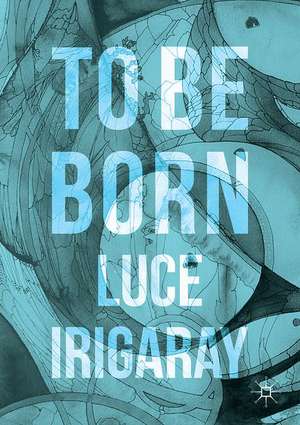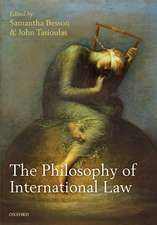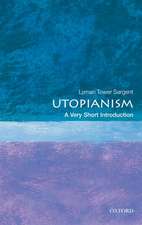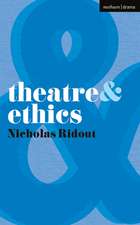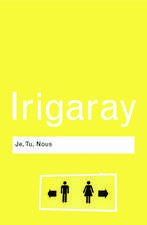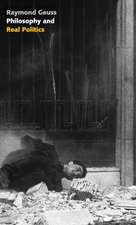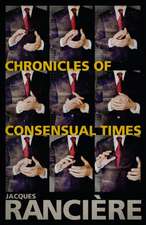To Be Born: Genesis of a New Human Being
Autor Luce Irigarayen Limba Engleză Paperback – 24 feb 2017
In this book, Luce Irigaray - philosopher, linguist, psychologist and psychoanalyst - proposes nothing less than a new way of conceiving what a human being is as well as a means to ensure our individual and relational development from birth.
Unveiling the mystery of our origin is probably what most motivates our quests and plans. And yet such a disclosure proves to be impossible. Indeed we were born as one from a union between two, and we are forever deprived of an origin of our own. Hence our ceaseless search for roots: in our genealogy, in the place where we were born, in our culture, religion or language. But a human being cannot develop from its own roots as a tree does. As humans, we must take responsibility for our own being and existence without any given continuity with our origin and background.
How can we achieve that? First by cultivating our breathing, which is more than a means to come into the world and to exist; breathing also allows us to transcend mere survival to secure for ourselves a spiritual becoming. Taking on our sexuate belonging is the second element which enables us to assume our natural existence. Indeed, this determination at once brings us energy and provides us with a structure which contributes to our individuation and our relations with other living beings and the world. Our sexuation can compensate for our absence of roots too by compelling us to unite with the other sex so that we freely approach the copulative conjunction from which we were born; that is, the mystery of our origin. This does not occur through a mere sexual instinct or drive, but requires us to cultivate desire and love with respect for our mutual difference(s). In this way we can give rise to a new human being, not only at a natural but also at an ontological level.
Preț: 195.59 lei
Nou
Puncte Express: 293
Preț estimativ în valută:
37.43€ • 39.08$ • 30.97£
37.43€ • 39.08$ • 30.97£
Carte disponibilă
Livrare economică 14-28 martie
Livrare express 28 februarie-06 martie pentru 16.75 lei
Preluare comenzi: 021 569.72.76
Specificații
ISBN-13: 9783319392219
ISBN-10: 3319392212
Pagini: 118
Ilustrații: XII, 106 p.
Dimensiuni: 148 x 210 x 14 mm
Greutate: 0.15 kg
Ediția:1st ed. 2017
Editura: Springer International Publishing
Colecția Palgrave Macmillan
Locul publicării:Cham, Switzerland
ISBN-10: 3319392212
Pagini: 118
Ilustrații: XII, 106 p.
Dimensiuni: 148 x 210 x 14 mm
Greutate: 0.15 kg
Ediția:1st ed. 2017
Editura: Springer International Publishing
Colecția Palgrave Macmillan
Locul publicării:Cham, Switzerland
Cuprins
1. Prologue: An Elusive Origin.- 2. Chapter 1: To Give Birth to Oneself.- 3. Chapter 2: Coming into the World.- 4. Chapter 3: Growing.- 5. Chapter 4: To Inhabit the World.- 6. Chapter 5: Dwelling in Oneself.- 7. Chapter 6: Being With.- 8. Chapter 7: To Become Oneself.- 9. Chapter 8: Language to Produce Something or to Produce Someone?.- 10. Chapter 9: The Source of the Word.- 11. Chapter 10: A Universe of Knowledge and Duties.- 12. Chapter 11: Acknowledgment and Recognition.- 13. Chapter 12: Desire as Rebirth.- 14. Chapter 13: The Necessity of Love.- 15. Chapter 14: Giving Birth to One Another.- 16. Chapter 15: To Conceive a New World.- 17. Chapter 16: Bringing forth the Future.- 18. Epilogue: On Feet of Dove.
Notă biografică
Luce Irigaray is one of the leading thinkers of our age. She is author of more than thirty books translated into various languages, the most recent of which are Sharing the World (2008), In the Beginning, She Was (2012) and Through Vegetal Being (co-authored with Michael Marder, 2016). She is also the co-editor (with Michael Marder) of Building a New World (2015), a volume in which early-career researchers from her seminars explore new ways of thinking, in order to promote a world-wide community respectful of differences between the sexes, generations, cultures and traditions.
Textul de pe ultima copertă
In this book, Luce Irigaray - philosopher, linguist, psychologist and psychoanalyst - proposes nothing less than a new conception of being as well as a means to ensure its individual and relational development from birth.
Unveiling the mystery of our origin is probably what most motivates our quests and plans. Now such a disclosure proves to be impossible. Indeed we were born of a union between two, and we are forever deprived of an origin of our own. Hence our ceaseless search for roots: in our genealogy, in the place where we were born, in our culture, religion or language. But a human being cannot develop starting from roots as a tree does, it must take on responsibility for its own being and existence without continuity with its origin and background.
How can we succeed in doing that? First by cultivating our breathing, which is not only the means thanks to which we come into the world, but which also allows us to transcend mere survival towards a spiritual becoming. Taking on our sexuate belonging is the second element which makes us able to assume our natural existence. Indeed this determination at once brings us energy and provides us with a structure which contributes to our individuation and our relations with other living beings and the world. Our sexuation can also compensate for our absence of roots by compelling us to unite with the other sex so that we freely approach the copulative conjunction from which we were born; that is, the mystery of our origin. This does not occur through a mere sexual instinct or drive, but requires us to cultivate desire and love with respect for our mutual difference(s). In this way we become able to give rise to a new human being, not only at a natural but also at an ontological level.
Unveiling the mystery of our origin is probably what most motivates our quests and plans. Now such a disclosure proves to be impossible. Indeed we were born of a union between two, and we are forever deprived of an origin of our own. Hence our ceaseless search for roots: in our genealogy, in the place where we were born, in our culture, religion or language. But a human being cannot develop starting from roots as a tree does, it must take on responsibility for its own being and existence without continuity with its origin and background.
How can we succeed in doing that? First by cultivating our breathing, which is not only the means thanks to which we come into the world, but which also allows us to transcend mere survival towards a spiritual becoming. Taking on our sexuate belonging is the second element which makes us able to assume our natural existence. Indeed this determination at once brings us energy and provides us with a structure which contributes to our individuation and our relations with other living beings and the world. Our sexuation can also compensate for our absence of roots by compelling us to unite with the other sex so that we freely approach the copulative conjunction from which we were born; that is, the mystery of our origin. This does not occur through a mere sexual instinct or drive, but requires us to cultivate desire and love with respect for our mutual difference(s). In this way we become able to give rise to a new human being, not only at a natural but also at an ontological level.
Caracteristici
Represents the latest ideas from a world leading philosopher whose work is taught in universities throughout the world. Displays the next move in Irigaray’s thought in rethinking the concept of being and the relationship of beings to one another. Offers a new approach to the problems of infancy and origin. Touches upon themes common in Irigaray’s thought, including language, duties and the world.
